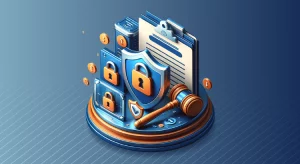
What Is Data Privacy? Understanding, Protecting, and Ensuring Compliance

Do you trust all the applications on your smartphone? How carefully do you read the confidential data usage agreements when they’re prompted? Do you know what data each application is using? These questions, if raised at a company-wide scale, can lead to significant consequences for its business. With vast amounts of sensitive data and numerous applications utilizing it, it’s crucial to understand, classify, and manage your data correctly. Grasping the basics of data privacy and learning how to safeguard our personal data is crucial.
This guide will discuss data privacy, its importance, and ways to protect sensitive information. Data privacy is crucial for safeguarding personal and confidential data.
Understanding Data Privacy
Data privacy refers to the protection of personal and sensitive information from unauthorized access, use, disclosure, or destruction. It encompasses the practices and policies that organizations implement to ensure the confidentiality, integrity, and availability of data. Protecting data privacy is both a legal requirement and an ethical responsibility. It aims to respect individuals’ privacy rights.
Examples of sensitive data that require protection include:
- Personal Identifiable Information (PII) such as names, addresses, and social security numbers
- Financial information like credit card numbers and bank account details
- Medical records and health-related information
- Confidential business information and trade secrets
The Importance of Data Privacy
Data privacy is extremely important in a time when data breaches and cyber attacks are on the rise. A single data breach can lead to significant financial losses, reputational damage, and loss of customer trust. Moreover, non-compliance with data privacy regulations can result in hefty fines and legal consequences.
Consider the example of the European Union’s General Data Protection Regulation (GDPR), which came into effect in May 2018. Under GDPR, organizations that fail to protect the personal data of EU citizens can face penalties. Penalties can be up to 4% of their global annual revenue or €20 million. This highlights the stringent measures taken by regulatory authorities to enforce data privacy compliance.
Key Aspects of Data Privacy
To ensure data privacy, organizations must implement a comprehensive approach that covers various aspects of data management. Let’s explore some of the key areas that contribute to effective data privacy practices.
Security Standards
Implementing robust security standards is the foundation of data privacy. Organizations must adopt industry-recognized security frameworks such as ISO 27001, NIST, or PCI DSS. This establishes a strong security posture. These standards provide guidelines for implementing technical and organizational measures to protect sensitive data from unauthorized access, tampering, or disclosure.
For example, the Payment Card Industry Data Security Standard (PCI DSS) mandates specific security requirements for organizations that handle credit card information. By adhering to PCI DSS, businesses can ensure the secure processing, storage, and transmission of cardholder data. At the same time it helps to reduce the risk of data breaches and financial fraud.
Data Classification and Sensitive Data Identification
Effective data privacy begins with identifying and classifying sensitive data within an organization’s systems and databases. Data classification involves categorizing data based on its sensitivity level and the potential impact of its unauthorized disclosure. By clearly defining what constitutes sensitive data, organizations can prioritize their security efforts and implement appropriate controls.
For instance, an organization may classify data into categories such as public, internal, confidential, and restricted. We will protect sensitive data from unauthorized access and misuse. Each category will have its own access controls and handling procedures.
We put these measures in place to ensure the security of the data. Unauthorized individuals will not be able to access or misuse the sensitive information.
Privacy in the Context of Searching Sensitive Data
Organizations must implement strict access controls and auditing mechanisms. Especially when searching and querying sensitive data. Only authorized personnel should have access to sensitive data on a need-to-know basis.
Also, make sure to keep track of all attempts to access and retrieve data. This helps to catch any suspicious or unauthorized access.
Consider a scenario where a healthcare organization maintains a database of patient records. Only authorized medical staff should be able to access the patient information. Implement masking techniques to protect sensitive data like social security numbers when displaying search results to limited access users.
Data Masking and Assess Restrictions
Data masking is a technique used to protect sensitive data by replacing it with fictitious but realistic data. It helps organizations keep sensitive information private while still being able to use it for testing, development, or analytics. Data masking protects sensitive information by preventing unauthorized individuals from accessing the original data, even if they obtain the masked version.
A financial institution can use data masking to replace credit card numbers with fake values. These fake values mimic real credit card numbers but do not link to any actual accounts. This allows developers and testers to work with realistic data without compromising the privacy of customers’ financial information.
In addition to data masking, organizations must implement granular access restrictions based on user roles and responsibilities. Users only have access to the data they need for their job. This minimizes the risk of unauthorized access and data breaches.
The Evolution of Data Privacy Compliance
Laws and rules have changed over time to protect people’s privacy when it comes to their information. The Fair Credit Reporting Act (FCRA) of 1970 was one of the first laws to protect people’s data privacy. It controlled how consumer credit information was collected, shared, and used in the United States.
Since then, numerous data privacy regulations have emerged globally, such as:
- The Health Insurance Portability and Accountability Act (HIPAA) in the United States
- The Personal Information Protection and Electronic Documents Act (PIPEDA) in Canada
- The General Data Protection Regulation (GDPR) in the European Union
- The California Consumer Privacy Act (CCPA) in the United States
These rules make organizations follow strict guidelines for protecting personal data. Before using the data, they need to get permission. They also need to give individuals the option to access, correct, and delete their personal information. Non-compliance with these regulations can lead to significant financial penalties and reputational damage.
Conclusion
Data privacy is essential in the digital age, requiring understanding and strong measures to protect sensitive information.
Organizations can protect people’s privacy and maintain trust by following security standards. They can do this by identifying sensitive data and using access controls and data masking techniques. It is also important for organizations to stay compliant with regulations.
At DataSunrise, we offer exceptional and flexible tools for data privacy and security. Our solutions encompass security monitoring, audit rules, data masking, and compliance management. Visit our team for an online demo.
Discover how DataSunrise can improve your organization’s data privacy. Ensure compliance with regulations.
